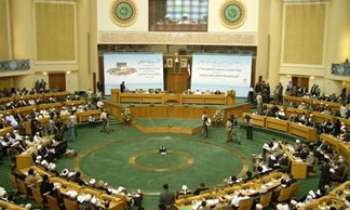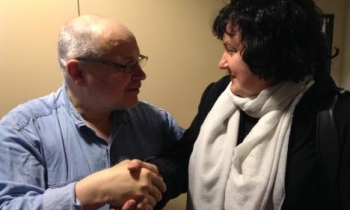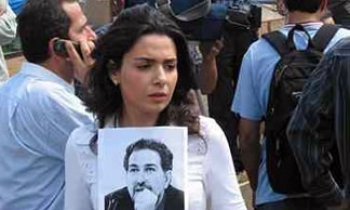Brussels, 29 August - The death of a Reuters soundman brings the total of journalists and support staff known to have been killed by US forces in the Iraq war to 13. Eighty-one members of the news media have died since the war began in March 2003, according to figures compiled by the International News Safety Institute.
More than half - 50 - were murdered by insurgents and other unidentified gunmen and bombers. American firepower is the next most significant cause of death.
There is no firm evidence that US forces have deliberately targeted the news media. But there is widespread suspicion that American troops do not take adequate precautions to try to ensure the safety of journalists. None of the other Coalition forces has killed any journalists.
"Journalists are a vital pillar of any democracy," said INSI Director Rodney Pinder. "It is doubly disturbing when they are killed by armies that fight in the name of democratic values."
The vast majority of the journalist dead are Iraqi, like Reuters Television soundman Waleed Khaled, 35, killed in Baghdad on Sunday. Iraqi police said he and wounded cameraman Haider Kadhem, were shot by US forces.
Journalists and other newsgathering staff from 16 countries have died since the war began in March 2003 - almost three a month. Iraqis, practising press freedom for the first time after decades of dictatorship, have taken the brunt of casualties with 57 dead.
This reflects their role as the primary providers of news of the war.Most of the television news footage of the conflict seen around the world comes from Iraqi camera crews like Khaled and Kadhem. Iraq is simply too dangerous for foreign journalists often to emerge from highly-guarded compounds in the capital.
Iraqi journalists are often caught in a kind of free fire zone between insurgents and Coalition forces. They are targeted by the insurgents as instruments of occupation. They are suspected by many Americans of being agents, unwitting or otherwise, of the insurgency.
They cannot openly identify themselves or their vehicles as Press because of the likelihood of attack by terrorists. But when they move around unidentified they are vulnerable to US soldiers who suspect every civilian in the vicinity of a violent incident may be a threat.
In addition, several Iraqi and other Arab news staff detained by the US military have complained of abuse and humiliation by captors who seem unable or unwilling to believe they can be genuine journalists and not enemy agents.
Khaled's companion, cameraman Kadhem, who was wounded in the back and was the only known witness of the incident was detained by US troops and was still being questioned 12 hours later. No explanation was given.
Reuters still seeks the release of a cameraman arrested by US forces three weeks ago who is being held in Abu Ghraib prison. US military officials say he will face a judicial hearing but have given no access to the journalist or say what he is suspected of.
Reuters Global Managing Editor David Schlesinger called for an immediate thorough and impartial investigation into the killing of Khaled.
The US-based Committee to Protect Journalists has said that the US military often seems "indifferent and unwilling" to launch an adequate investigation or take steps to mitigate risk to journalists in Iraq.
The International Federation of Journalists, in a letter to President Bush earlier this year, called on the US government to end all speculation over killings of journalists and media staff by providing "credible and convincing" reports on fatal incidents.
US military officials have discussed ways to improve safety with news executives and press freedom groups. An internal Pentagon report on the shooting of Reuters cameraman Mazen Dana in August 2003 even produced recommendations that could provide a greater degree of safety for journalists on the battlefield, but few are known to have been implemented.
Iraq persists as the most dangerous location in the world for the news media. As well as the Iraqis, the war has claimed the lives of journalists from Algeria, Argentina (2), Australia (2), Britain (3), Germany, Iran, Italy, Japan (2), Jordan, Lebanon, Palestine, Poland, Spain (2), Ukraine and the United States (4).
In addition to those killed by terrorists and US forces, seven died in crossfire, two were killed by Iraqi soldiers before the fall of Saddam Hussein, one was believed to have been shot by Iraqi troops working with the Coalition and eight died from accidents or health-related problems. By comparison, the Vietnam War claimed about 70 news media deaths over 20 years.









